
Bassa: The Heartbeat of Douala
Bassa, located in the bustling city of Douala, Cameroon, is a vibrant and culturally rich neighbourhood that offers tourists an authentic African experience. Known for its lively markets, warm-hearted locals, and diverse culinary delights, Bassa is a must-visit for anyone exploring Douala. Wander through the colourful stalls of the local markets, where you can find everything from fresh produce to handmade crafts. The air is filled with the aromas of traditional Cameroonian dishes being prepared, and the sounds of friendly banter among vendors and shoppers. This is the perfect place to pick up unique souvenirs and immerse yourself in the daily life of the locals. For history enthusiasts, Bassa is home to several historical landmarks that tell the story of Douala’s colonial past and rich heritage. Take a leisurely stroll through the neighbourhood and discover its hidden gems, from old colonial buildings to vibrant street art that reflects the community’s spirit and resilience. Food lovers will be delighted by the array of dining options available in Bassa. From street food vendors serving up delicious snacks to cozy restaurants offering traditional Cameroonian cuisine, there is something to satisfy every palate. Don’t miss the chance to try local favourites like ndolé, a delicious spinach stew, or grilled fish fresh from the nearby Wouri River.
Local tips in Bassa
- Visit the markets early in the morning for the freshest produce and to avoid the midday heat.
- Wear comfortable shoes as you will be doing a lot of walking on uneven surfaces.
- Try to learn a few basic phrases in French or the local dialect to enhance your interactions with the locals.
- Be mindful of your belongings and avoid displaying valuables openly to ensure a safe visit.
- If you’re a foodie, don’t miss the street food vendors for an authentic taste of Cameroonian cuisine.
Bassa: The Heartbeat of Douala
Bassa, located in the bustling city of Douala, Cameroon, is a vibrant and culturally rich neighbourhood that offers tourists an authentic African experience. Known for its lively markets, warm-hearted locals, and diverse culinary delights, Bassa is a must-visit for anyone exploring Douala. Wander through the colourful stalls of the local markets, where you can find everything from fresh produce to handmade crafts. The air is filled with the aromas of traditional Cameroonian dishes being prepared, and the sounds of friendly banter among vendors and shoppers. This is the perfect place to pick up unique souvenirs and immerse yourself in the daily life of the locals. For history enthusiasts, Bassa is home to several historical landmarks that tell the story of Douala’s colonial past and rich heritage. Take a leisurely stroll through the neighbourhood and discover its hidden gems, from old colonial buildings to vibrant street art that reflects the community’s spirit and resilience. Food lovers will be delighted by the array of dining options available in Bassa. From street food vendors serving up delicious snacks to cozy restaurants offering traditional Cameroonian cuisine, there is something to satisfy every palate. Don’t miss the chance to try local favourites like ndolé, a delicious spinach stew, or grilled fish fresh from the nearby Wouri River.
Iconic landmarks you can’t miss
Rond-Point Deido
Explore the vibrant history of Douala at Rond-Point Deido, a lively landmark where local culture and tradition come alive.
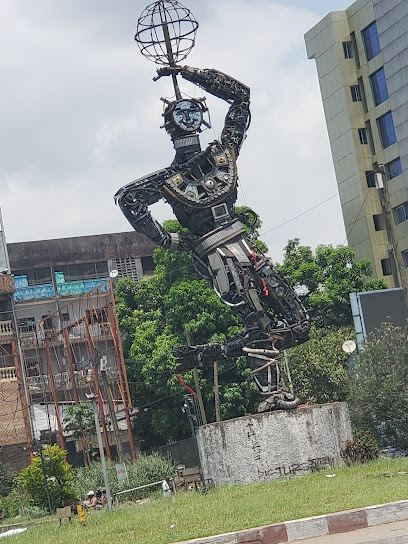
Cathedral of St Peter and Paul Bonadibong
Discover the architectural beauty and spiritual significance of Douala's Cathedral of Saints Peter and Paul Bonadibong, a landmark of faith and history.
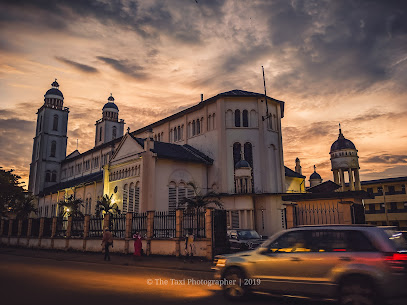
Maritime Museum Of Douala
Explore Cameroon's maritime past at the Douala Maritime Museum, a captivating journey through coastal history and seafaring traditions.
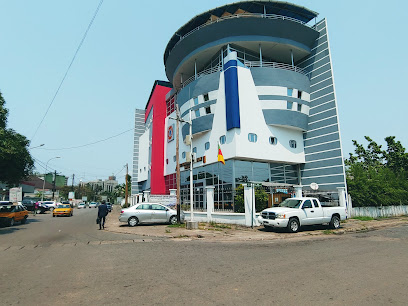
PLACE SAINTE ELISA
Experience Cameroonian celebrations at PLACE SAINTE ELISA, Douala's versatile venue for weddings, corporate events, and community gatherings.
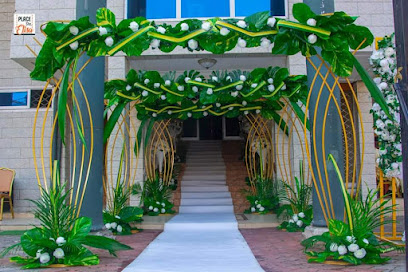
Monument Du Cinquantenaire De L'armée
Discover Douala's Monument Du Cinquantenaire De L'armée: a symbol of military history, national pride, and cultural richness.
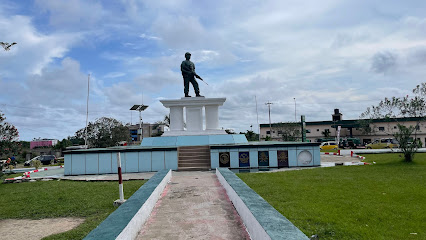
La Nouvelle Liberté
Discover La Nouvelle Liberté in Douala: a towering symbol of freedom, resilience, and Cameroonian heritage at the heart of the city's vibrant Deido neighborhood.
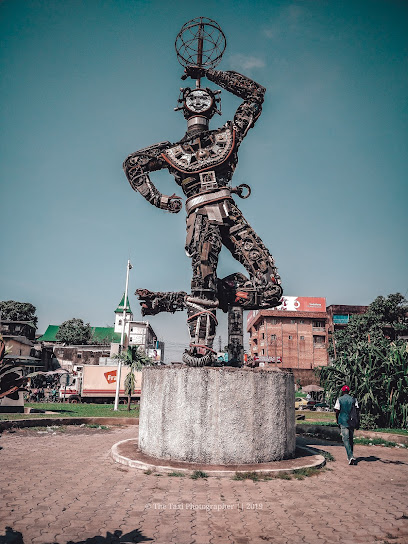
Ancienne Residence du Chef de Circonscription
Explore Douala's colonial past at the Ancienne Résidence du Chef de Circonscription, a historical landmark with stunning architecture on Rue Victoria.
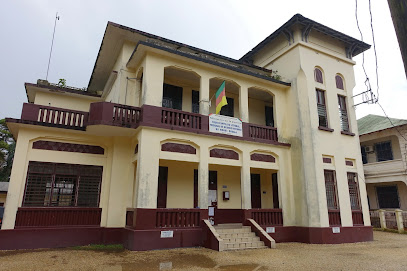
Bassa Douala
Experience the vibrant culture of Bassa in Douala, Cameroon: lively markets, historical sites, and delicious cuisine await!
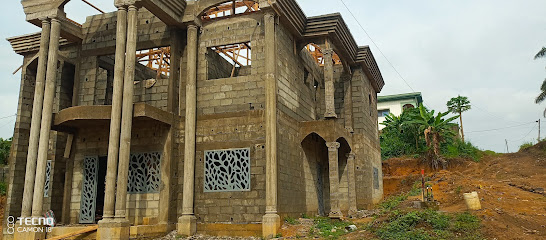
Monument Nachtigal
Explore Monument Nachtigal in Douala, a landmark honoring German explorer Gustav Nachtigal and Cameroon's colonial history.
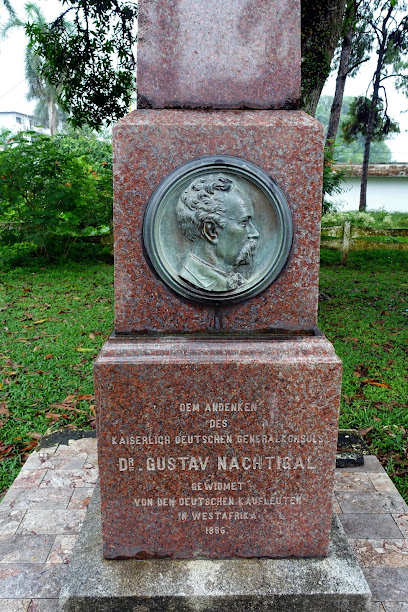
Unmissable attractions to see
Maritime Museum Of Douala
Explore Douala's rich maritime history at the Maritime Museum, showcasing the evolution of trade and seafaring in Cameroon.
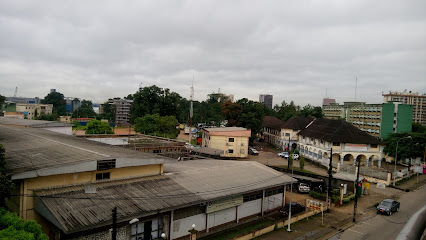
Doual'art
Discover the vibrant world of contemporary art at Doual'art, a cultural center in Douala showcasing Cameroon’s artistic heritage.
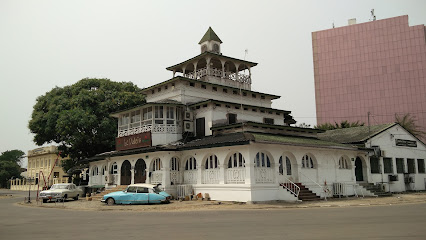
VITAFISH DOUALA
Experience the freshest seafood at VITAFISH DOUALA, where local flavors meet vibrant ambiance in the heart of Cameroon.
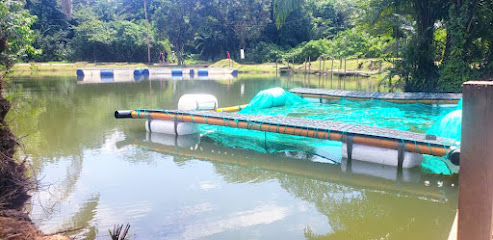
Deido
Experience the vibrant culture and local flavors of Deido in Douala, Cameroon, a must-visit destination for every traveler.
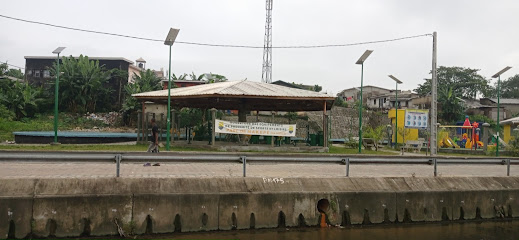
Les TAROCRATES de MAGNI
Discover the vibrant artistry and cultural heritage at Les TAROCRATES de MAGNI, a captivating attraction in Douala, Cameroon.

ETS ONLYNGUE
Experience the vibrant culture and rich traditions of Cameroon at ETS ONLYNGUE, a must-visit tourist attraction in Douala.

Carrefour Sawa où Giclé
Explore Carrefour Sawa in Douala, a vibrant tourist attraction featuring local crafts, delicious cuisine, and a lively cultural atmosphere.

Essential places to dine
Resto bio 237
Discover authentic Cameroonian flavors at Resto Bio 237, a charming African restaurant in Douala offering delicious dishes at affordable prices.
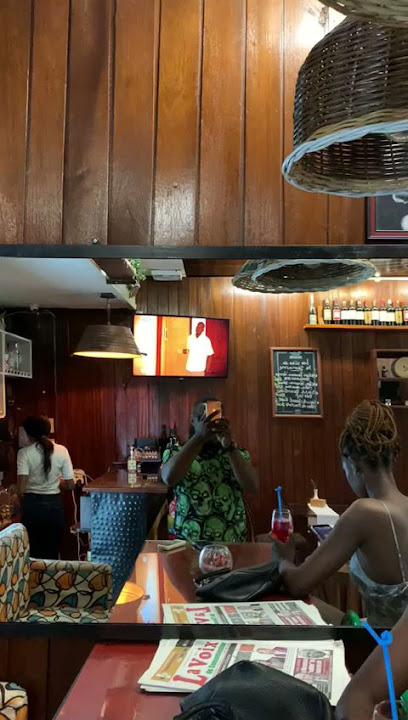
Restaurant Sénégalais Chez Touba
Experience authentic Senegalese cuisine at Restaurant Sénégalais Chez Touba in Douala, where every dish tells a story.
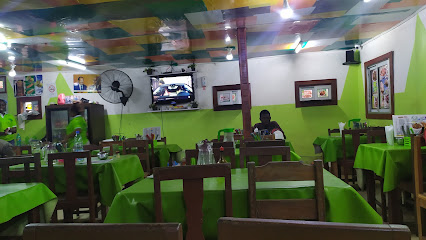
RESTAURANT AFRICAIN MODERNE DMC DAKERE
Discover authentic African cuisine at Restaurant Africain Moderne DMC Dakere in Douala – where tradition meets flavor in every dish.
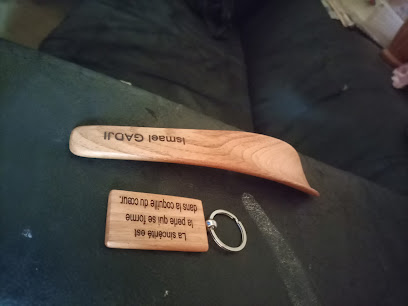
Cuisine Camerounaise de Bunduela
Discover the authentic taste of Cameroon at Cuisine Camerounaise de Bunduela - a culinary journey through local flavors.

ST' BOTTLE'S AFRICAN'S SPOT
Discover the vibrant flavors of Africa at ST' BOTTLE'S AFRICAN'S SPOT in Douala – where every dish tells a story.
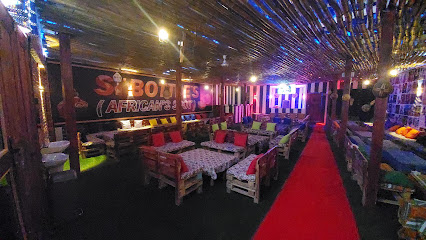
La colombe
Discover La Colombe in Douala: A fast food paradise offering delicious meals with a local twist.

Chez Pierrette
Experience authentic Cameroonian flavors at Chez Pierrette, where tradition meets taste in the heart of Douala.
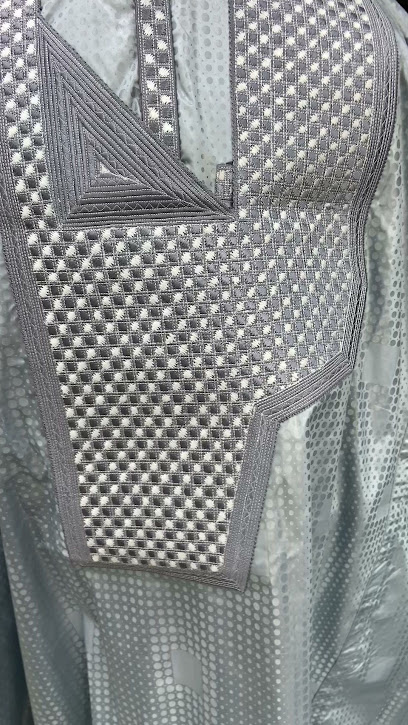
Restaurant la grâce
Discover the flavors of Cameroon at Restaurant la Grâce - where culinary tradition meets modern dining in the heart of Douala.
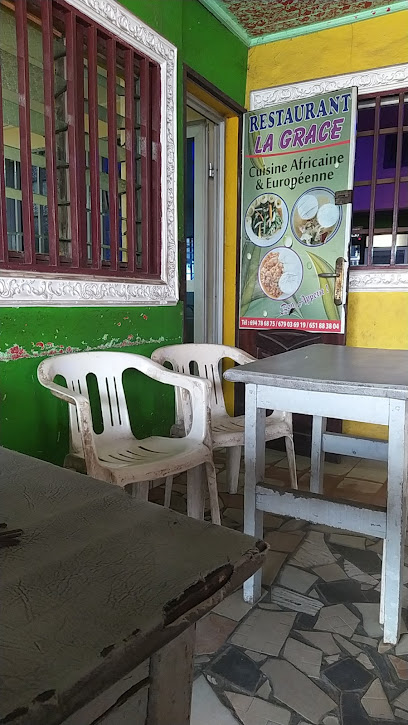
Restaurant Bar Fines saveurs
Discover authentic Cameroonian flavors at Restaurant Bar Fines Saveurs in Douala - a must-visit culinary haven for tourists.
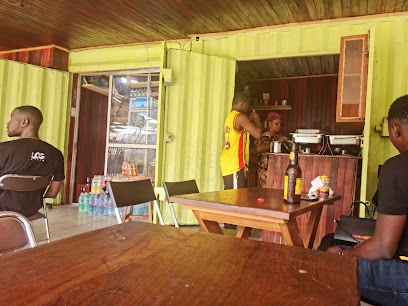
Chez Valerie L'argent. Resto trois étoiles, Cité-sic Bassa. À coté du Grand Saphir.
Discover authentic Cameroonian cuisine at Chez Valerie L'argent in Douala - where every dish tells a story.

Markets, malls and hidden boutiques
DB Shopping
Explore the vibrant DB Shopping boutique in Douala, offering unique fashion and lifestyle products that embody local culture and craftsmanship.

African Touch
Explore the vibrant artistry of Cameroon at African Touch, a boutique in Douala offering unique handmade crafts and cultural treasures.
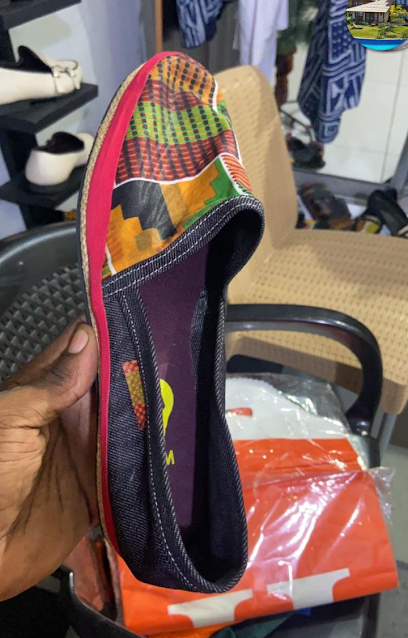
yvan shop
Discover a unique blend of local crafts and souvenirs at Yvan Shop in Douala, the perfect place to find memorable gifts and support local artisans.
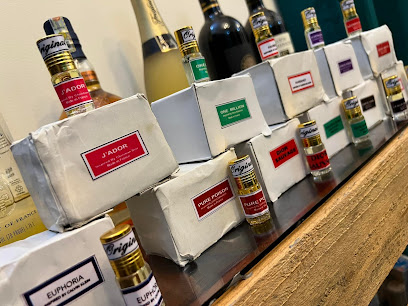
Shopping saotech abdoul
Explore an array of authentic gifts and crafts at Shopping Saotech Abdoul, a treasure trove of local artistry in the heart of Douala.

Fashion Tyme
Discover unique fashion pieces at Fashion Tyme, Douala's vibrant boutique offering a blend of local and international styles.
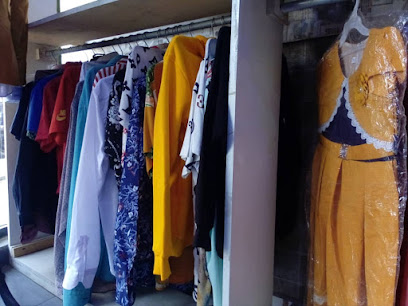
omer shopping
Discover the vibrant shopping culture of Douala at Omer Shopping, where local crafts and trendy fashion meet in a boutique paradise.

Minga'a Sell
Explore Minga'a Sell, a boutique in Douala offering unique local crafts and stylish merchandise that embody the spirit of Cameroon.

Rose Market
Explore the heart of Douala at Rose Market, a vibrant gift shop filled with unique local crafts and souvenirs that embody the spirit of Cameroon.
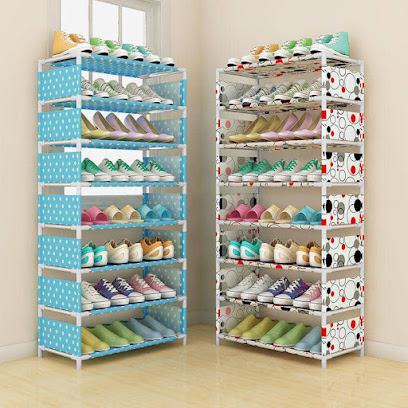
kenne shopping
Explore a vibrant selection of dresses at Kenne Shopping in Douala, a true fashion haven reflecting local culture and trends.

m'y bags Shop online
Explore M'y Bags Shop in Douala for trendy fashion accessories that celebrate local craftsmanship and style.
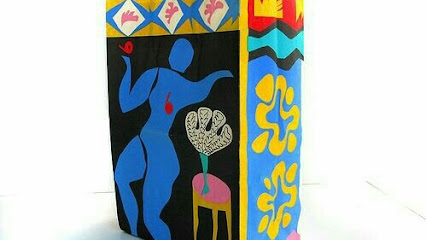
Essential bars & hidden hideouts
Ancienne Belle Hollandaise
Discover the vibrant atmosphere and local flavors at Ancienne Belle Hollandaise, a top bar in Douala for tourists and locals alike.
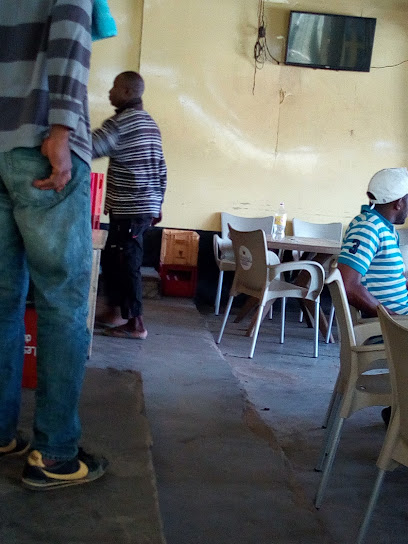
Kratos Bar Pub
Discover the lively ambiance and delightful flavors at Kratos Bar Pub, your go-to lounge for bar and grill specialties in Douala.
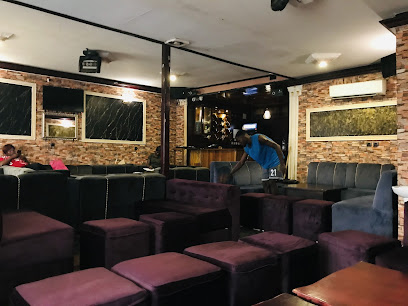
Jeugoum Palace Snack Bar, Douala
Experience the vibrant nightlife at Jeugoum Palace Snack Bar in Douala, where locals and travelers gather to enjoy refreshing drinks and lively atmosphere.
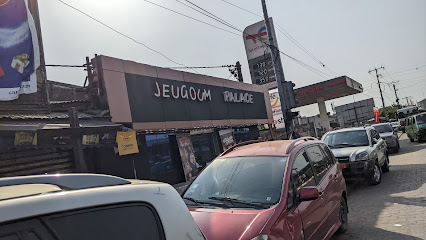
Le PRUNIER chez CERAL
Discover the lively atmosphere of Le PRUNIER chez CERAL in Douala, where local culture meets vibrant nightlife and refreshing drinks.
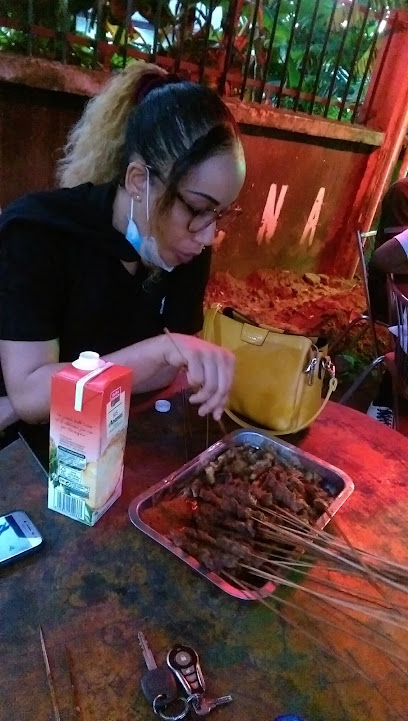
LAVERIE BAR LE MODEL
Experience the heartbeat of Douala's nightlife at Laverie Bar Le Model, where live music and vibrant culture collide.
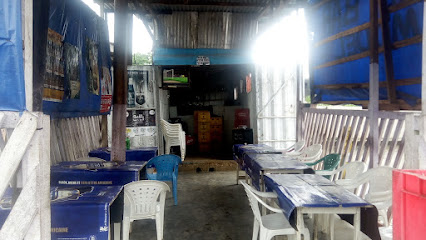
Zagalo bar
Experience the vibrant nightlife at Zagalo Bar in Douala, where local flavors and lively ambiance meet.
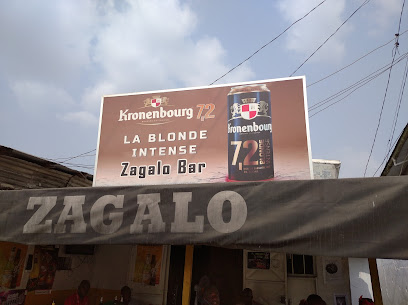
Embassy bar and Restaurant
Discover the vibrant spirit of Douala at Embassy Bar and Restaurant, where local flavors and lively entertainment create the ultimate nightlife experience.

Bar Bo Nsa
Experience the vibrant nightlife and local flavors at Bar Bo Nsa in Douala, where every drink tells a story.

G.P.E Cave
Discover G.P.E Cave, a vibrant bar in Douala where local culture meets lively nightlife. Perfect for tourists seeking a unique experience.

Fer Rouge Bar
Explore the lively nightlife of Douala at Fer Rouge Bar, where vibrant energy meets delicious drinks in a culturally rich atmosphere.
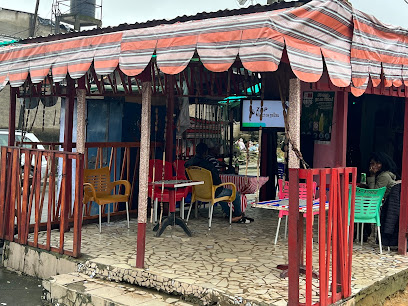
Local Phrases
-
- HelloMbolo
[m-boh-loh] - GoodbyeAdios
[ah-dyohs] - YesEe
[ee] - NoAa
[ah] - Please/You're welcomeKala
[kah-lah] - Thank youMesi
[meh-see] - Excuse me/SorryAte
[ah-teh] - How are you?Na mapan?
[nah mah-pahn] - Fine. And you?Na mapan. A na?
[nah mah-pahn. ah nah] - Do you speak English?Na si Inglis?
[nah see een-glees] - I don't understandA na tondi
[ah nah tohn-dee]
- HelloMbolo
-
- I'd like to see the menu, pleaseNa mbo nde menu, kala
[nah m-boh ndeh meh-noo, kah-lah] - I don't eat meatA na mi nda nyama
[ah nah mee ndah nyah-mah] - Cheers!Kwassa!
[kwah-sah] - I would like to pay, pleaseNa mbo nde pa, kala
[nah m-boh ndeh pah, kah-lah]
- I'd like to see the menu, pleaseNa mbo nde menu, kala
-
- Help!Ndolo!
[ndoh-loh] - Go away!Wewa!
[weh-wah] - Call the Police!Nkolle polis!
[n-kohl-leh poh-lees] - Call a doctor!Nkolle dokta!
[n-kohl-leh dohk-tah] - I'm lostA na jeka
[ah nah jeh-kah] - I'm illA na mba
[ah nah mbah]
- Help!Ndolo!
-
- I'd like to buy...Na mbo nde...
[nah m-boh ndeh...] - I'm just lookingA na yi nde
[ah nah yee ndeh] - How much is it?E ndi senga?
[eh ndee sehn-gah] - That's too expensiveI nja sengi
[ee njah sehn-gee] - Can you lower the price?A na ke ba senga?
[ah nah keh bah sehn-gah]
- I'd like to buy...Na mbo nde...
-
- What time is it?E ngum sika?
[eh ngoom see-kah] - It's one o'clockE yi na sika
[eh yee nah see-kah] - Half past (10)E yi ndi (10)
[eh yee ndee (10)] - MorningMeka
[meh-kah] - AfternoonNgo
[ngoh] - EveningNgwai
[ng-wah-ee] - YesterdayMimba
[meem-bah] - TodayMeka
[meh-kah] - TomorrowMima
[mee-mah] - 1Eya
[eh-yah] - 2Ene
[eh-neh] - 3Eta
[eh-tah] - 4Ena
[eh-nah] - 5Ese
[eh-seh] - 6Sese
[seh-seh] - 7Soho
[soh-hoh] - 8Soso
[soh-soh] - 9Sote
[soh-teh] - 10Meka
[meh-kah]
- What time is it?E ngum sika?
-
- Where's a/the...?E na...
[eh nah...] - What's the address?E ndi adres?
[eh ndee ah-drehss] - Can you show me (on the map)?A na yi sika (na map)?
[ah nah yee see-kah (nah map)] - When's the next (bus)?E ngum nde (bus)?
[eh ngoom ndeh (boos)] - A ticket (to ....)Nkolle tiket (si ....)
[n-kohl-leh tee-keh (see)]
- Where's a/the...?E na...
History of Bassa
-
Bassa, a vibrant neighbourhood in Douala, is rooted in the rich history of the Sawa people, an ethnic group of the coastal region of Cameroon. Historically, the Bassa people engaged in fishing, agriculture, and trade, establishing their communities along the banks of the Wouri River. Their traditional customs and practices, which are still evident today, reflect a deep connection to the land and waterways that sustain them.
-
The late 19th century marked a pivotal point in Bassa's history as European colonial powers, particularly the Germans, began to establish control over the territory. The arrival of German traders and missionaries altered the socio-economic landscape, leading to the introduction of cash crops and new trade routes. The Bassa community faced significant changes as they adapted to the colonial economy, which sometimes led to tensions and resistance.
-
During World War II, Douala, including Bassa, became a strategic location for the Allies. The war brought an influx of soldiers and resources, temporarily boosting the local economy. However, post-war, the region experienced economic shifts as independence movements gained momentum, leading to changes in governance and society. The Bassa neighbourhood, like many others in Douala, began to see a revival of local cultural identity amidst the political changes.
-
After Cameroon gained independence in 1960, Bassa became a focal point for urbanization and development in Douala. The neighbourhood witnessed significant demographic changes as people from various regions migrated to the city in search of better opportunities. This influx led to a diverse cultural landscape, with the blending of different traditions, languages, and lifestyles, enriching the community’s social fabric.
-
Today, Bassa is known for its vibrant cultural scene, with local festivals, music, and art reflecting the resilience of its people. The neighbourhood plays an essential role in Douala's identity, showcasing traditional Bassa dances, crafts, and culinary delights. Cultural institutions and community initiatives are actively working to preserve and promote Bassa's heritage, ensuring that the rich history of the area continues to thrive in the modern urban context.
Bassa Essentials
-
Bassa is well connected to other neighborhoods in Douala. From the Douala International Airport, you can take a taxi or a ride-sharing service directly to Bassa, which typically takes around 15-30 minutes depending on traffic. Alternatively, if you are in the city center, local taxis and 'bendskin' (motorcycle taxis) are readily available. Bassa is also served by several bus lines that connect it to neighborhoods like Akwa and Bonanjo.
-
Within Bassa, getting around can be done by foot, motorcycle taxis, or shared taxis. Bassa is relatively compact, making it easy to explore on foot. For longer distances, you can use the 'bendskin' which is a popular and affordable option. Public buses and minibuses are available but may be less frequently used by tourists. Always negotiate the fare before getting into a taxi or a motorcycle.
-
While Bassa is generally safe during the day, it's advisable to exercise caution, especially at night. Areas near the waterfront and some back streets may have higher crime rates, including petty theft and scams targeting tourists. It’s recommended to avoid these areas after dark and to keep your belongings secure and out of sight.
-
In case of an emergency, dial 112 for police assistance or 150 for medical emergencies in Cameroon. It’s advisable to keep the contact information of your country's embassy or consulate handy. For medical services, there are several clinics and hospitals in Douala, with some located near Bassa. Always carry travel insurance that covers emergencies.
-
Fashion: Do wear light and modest clothing considering the tropical climate, but avoid overly revealing outfits. Religion: Do be respectful of local customs, especially during religious gatherings. Public Transport: Do ask permission before taking photos of people on public transport. Don’t eat or drink on buses. Greetings: Do greet people with a friendly handshake. Eating & Drinking: Do try local street food but ensure it is prepared in hygienic conditions. Don’t refuse food offered to you as it may be considered rude.
-
To experience Bassa like a local, visit the bustling markets where you can find fresh produce, spices, and local crafts. Engage with local vendors and learn about their products. Try to attend community events or local celebrations if your visit coincides, as they provide a unique glimpse into the culture. Additionally, savor local dishes such as 'ndole' and 'achu' at neighborhood eateries.
Nearby Cities to Bassa
-
Things To Do in Tiko
-
Things To Do in Edea
-
Things To Do in Buea
-
Things To Do in Limbe
-
Things To Do in Nkongsamba
-
Things To Do in Malabo
-
Things To Do in Kribi
-
Things To Do in Luba
-
Things To Do in Dschang
-
Things To Do in Bafoussam
-
Things To Do in Bafia
-
Things To Do in Mbouda
-
Things To Do in Calabar
-
Things To Do in Mamfe
-
Things To Do in Yaoundé






